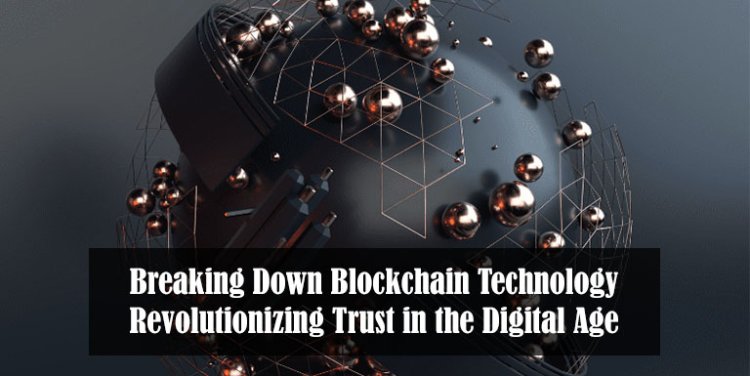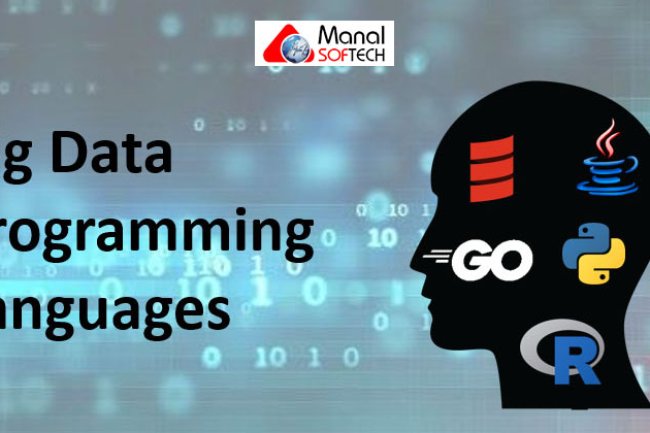Breaking Down Blockchain Technology: Revolutionizing Trust in the Digital Age

The rise of blockchain technology has been nothing short of revolutionary. While it's most commonly associated with cryptocurrencies like Bitcoin, its applications extend far beyond digital currencies. In this blog, we will delve into the world of blockchain, exploring its core concepts, how it works, and the myriad ways it's reshaping industries and trust in the digital age.
Understanding Blockchain Technology
Blockchain is a distributed ledger technology that enables secure and transparent record-keeping of transactions. Here's how it works:
-
Decentralization: Instead of relying on a central authority like a bank or government, blockchain operates on a decentralized network of computers (nodes).
-
Transactions: Data in a blockchain consists of transactions, which can represent various types of information, not limited to financial transactions.
-
Blocks: Transactions are grouped together into blocks, and each block contains a reference to the previous block, creating a chain.
-
Consensus Mechanisms: To add a new block to the chain, the network must reach a consensus through various mechanisms like Proof of Work (PoW) or Proof of Stake (PoS).
-
Immutability: Once a block is added to the chain, it cannot be altered, ensuring data integrity and security.
Blockchain Beyond Cryptocurrencies
While Bitcoin and other cryptocurrencies put blockchain on the map, its potential applications span diverse industries:
1. Supply Chain Management
Blockchain is used to track the journey of products from origin to destination, reducing fraud, errors, and ensuring authenticity. This is particularly beneficial in food safety and luxury goods industries.
2. Healthcare
Patient records, pharmaceutical supply chains, and clinical trials can all benefit from blockchain. Patients can have more control over their health data while ensuring privacy and security.
3. Financial Services
Blockchain can revolutionize payments, cross-border transactions, and asset management. Smart contracts automate financial agreements, reducing the need for intermediaries.
4. Voting Systems
By providing a secure, transparent, and tamper-proof way to record votes, blockchain has the potential to enhance the integrity of electoral processes.
5. Real Estate
Blockchain simplifies property transactions by eliminating paperwork, reducing fraud, and enabling efficient record-keeping.
6. Intellectual Property
Artists, writers, and creators can protect their intellectual property using blockchain, which provides immutable records of ownership and provenance.
7. Energy and Sustainability
Blockchain can facilitate peer-to-peer energy trading and carbon credit tracking, making energy distribution more efficient and sustainable.
8. Gaming and Collectibles
In the world of gaming, blockchain is used for in-game assets, ownership records, and collectibles like NFTs (Non-Fungible Tokens).
Challenges and Considerations
Blockchain technology is not without its challenges:
-
Scalability: As the number of transactions on a blockchain grows, scalability becomes a concern.
-
Regulatory Environment: Governments are still adapting to the legal and regulatory implications of blockchain.
-
Energy Consumption: Some blockchain networks, like Bitcoin, require substantial energy for mining.
Blockchain technology has disrupted the way we think about trust and digital transactions. It has the potential to reshape numerous industries by offering transparency, security, and efficiency. As the blockchain landscape evolves, it's crucial to consider not just its benefits, but also its limitations, and to work collaboratively to ensure responsible and ethical use. As we continue to explore the potential of blockchain, we may uncover new ways to transform industries, economies, and the way we interact with data and assets in the digital age. The blockchain revolution is just beginning, and the possibilities are boundless
What's Your Reaction?















